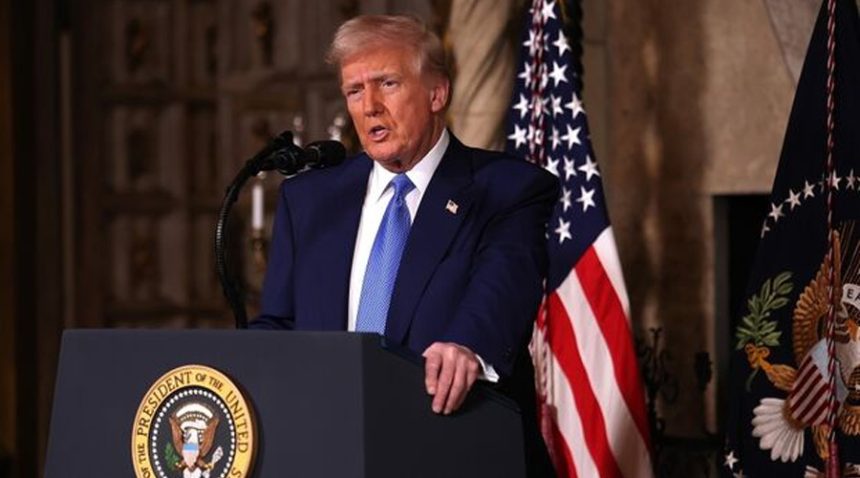Prices may skyrocket, international tensions may rise, and industries could face supply chain disruptions
President Donald Trump announced his intention to impose a 25% tariff on imported automobiles, pharmaceuticals, and semiconductor chips. This policy aims to protect domestic industries and address perceived trade imbalances. The proposed tariffs, expected to take effect on April 2, have sparked extensive debate regarding their potential beneficiaries and those who might face adverse effects.
Domestic Automotive Industry: Potential Beneficiaries
The U.S. automotive sector could experience a competitive boost as imported vehicles become more expensive due to the tariffs. This price increase may encourage consumers to opt for domestically manufactured cars, potentially leading to higher sales for American automakers. However, the modern automotive industry relies heavily on a global supply chain. Many U.S. manufacturers import components such as engines, transmissions, and electronics. The tariffs would also apply to these parts, increasing production costs for domestic vehicles. Consequently, while automakers might gain a pricing advantage over foreign competitors, they could also face higher manufacturing expenses, which might offset potential gains.
Employment in Manufacturing: A Mixed Outlook
Proponents of the tariffs argue that higher import duties will incentivize multinational companies to establish or expand manufacturing facilities within the United States, potentially leading to job creation. President Trump suggested that companies would have time to set up U.S. factories to avoid the tariffs. However, industry experts caution that building new manufacturing plants is a complex and time-consuming process. Additionally, increased production costs due to tariffs on imported components might lead companies to automate processes or seek cost-saving measures, which could limit job growth.
Consumers: Facing Higher Prices
One of the most immediate impacts of the proposed tariffs would be on consumers. Imported vehicles, as well as domestically produced cars that rely on imported parts, are likely to see price increases. According to S&P Global Mobility, a 25% tariff on imported vehicles could raise the average price of a $25,000 car by $6,250. This surge in prices could make automobiles less affordable, particularly affecting budget-conscious consumers. The pharmaceutical sector might witness similar trends, with imported medications becoming more expensive, potentially leading to higher healthcare costs for patients.
Global Trade Relations: Escalating Tensions
The imposition of significant tariffs on major trading partners is likely to strain international relations. The European Union, a substantial exporter of automobiles to the U.S., has expressed concerns over the proposed tariffs. EU trade chief Maroš Šefčovič is scheduled to meet with U.S. officials to discuss these issues and seek to prevent a potential trade war. Historically, such tariffs have led to retaliatory measures, with affected countries imposing their own duties on American exports. This tit-for-tat escalation can disrupt global trade flows, affecting various industries beyond those directly targeted.
Stock Market and Economic Implications
Following the announcement of the proposed tariffs, stock markets, particularly in the automotive sector, experienced volatility. Shares of European car manufacturers like Porsche, BMW, and Volkswagen saw significant declines, reflecting investor concerns about reduced access to the U.S. market and potential profit losses. In the U.S., companies heavily reliant on imported components might face increased production costs, potentially leading to reduced profit margins and affecting stock performance. Economists warn that prolonged trade disputes and increased tariffs can lead to broader economic challenges, including slowed economic growth and increased inflation.
Pharmaceutical and Semiconductor Industries: Supply Chain Disruptions
The pharmaceutical and semiconductor sectors are also poised to feel the impact of the proposed tariffs. Many pharmaceutical companies source raw materials and active pharmaceutical ingredients from international suppliers. Imposing a 25% tariff on these imports could lead to increased production costs, which might be passed on to consumers in the form of higher drug prices. Similarly, the semiconductor industry, which relies on a complex global supply chain, could face disruptions. Tariffs on imported chips might lead to increased costs for electronics manufacturers, potentially slowing innovation and affecting a wide range of industries that depend on semiconductor technology.
Long-Term Strategic Considerations
While the immediate effects of the proposed tariffs are a focal point, it’s essential to consider the long-term strategic implications. By imposing these tariffs, the U.S. aims to reduce dependency on foreign manufacturing and encourage domestic production. However, achieving this shift requires significant investment in infrastructure, workforce training, and supply chain realignment. The transition period could be marked by economic disruptions, and the success of such a strategy depends on various factors, including the responsiveness of industries and the availability of resources.
President Trump’s proposed 25% tariffs on imported automobiles, pharmaceuticals, and semiconductor chips present a complex scenario with varied potential outcomes. While domestic industries might gain a competitive edge, the interconnected nature of global supply chains means that increased production costs could offset these benefits. Consumers are likely to face higher prices, and international trade relations could become increasingly strained, leading to broader economic implications. As the situation develops, stakeholders across industries and governments will need to navigate these challenges carefully to mitigate adverse effects and capitalize on potential opportunities.






